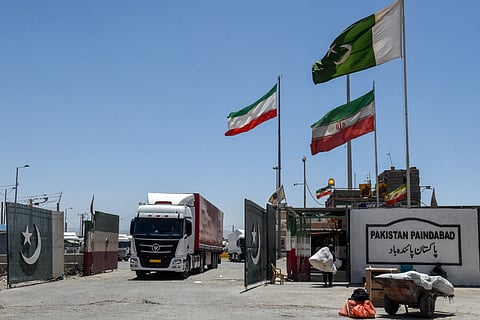Pakistan launches Land Port Authority to strengthen trade, border management
Reform aims to unlock transit potential, improve compliance, and enhance connectivity

Dubai: Pakistan President Asif Ali Zardari on Saturday signed a new bill formally establishing the Pakistan Land Port Authority (PLPA), a statutory body mandated to manage land border crossings, facilitate cross-border movement, and enhance trade efficiency.
With this decision, Pakistan becomes the third country in South Asia, after India and Bangladesh, to create a dedicated land port authority, a step analysts say could significantly improve both the ease of doing business and the country’s regional trade competitiveness.
Trade facilitation
The PLPA is expected to serve as a “single-window” institution that coordinates between customs, immigration, security, and other agencies operating at border points. Currently, businesses face delays, duplicative inspections, and inconsistent procedures that raise transaction costs and erode Pakistan’s competitiveness.
Benefits
Reduced trade costs: By streamlining customs and immigration processes, the PLPA could cut clearance times and reduce demurrage and logistics expenses for exporters and importers.
Boost to regional commerce: Pakistan’s land borders with China, Afghanistan, Iran, and India handle billions in trade annually. Analysts argue that efficient land port management could unlock new opportunities for transit trade, particularly under the China-Pakistan Economic Corridor (CPEC) and regional connectivity initiatives.
Investor confidence: Improved border management will likely support logistics, warehousing, and transport infrastructure projects, creating opportunities for both domestic and foreign investors.
Trade corridor
Business leaders have welcomed the move, saying the authority could help Pakistan better leverage its geographic position as a trade corridor between Central Asia, South Asia, and the Middle East.
Regional integration
From a governance standpoint, the PLPA will centralise coordination among multiple agencies working at land borders. At present, overlapping mandates often lead to inefficiencies and weak enforcement.
Institutional streamlining: The authority is tasked with creating a robust coordination mechanism across border agencies, standardising procedures, and ensuring compliance with international norms.
International obligations: The PLPA will help Pakistan meet requirements under agreements such as the World Trade Organisation’s Trade Facilitation Agreement (TFA) and various regional trade pacts.
Security and regulation: By integrating border management, the authority will also play a role in countering smuggling, monitoring cross-border flows, and enhancing transparency.
The establishment of the Pakistan Land Port Authority is being described by experts as a strategic reform with dual benefits:
For business: Lower trade costs, faster cross-border logistics, and improved investor confidence in Pakistan’s trade infrastructure.
For policy: Stronger governance, streamlined agency coordination, and improved compliance with international standards.
Sign up for the Daily Briefing
Get the latest news and updates straight to your inbox




